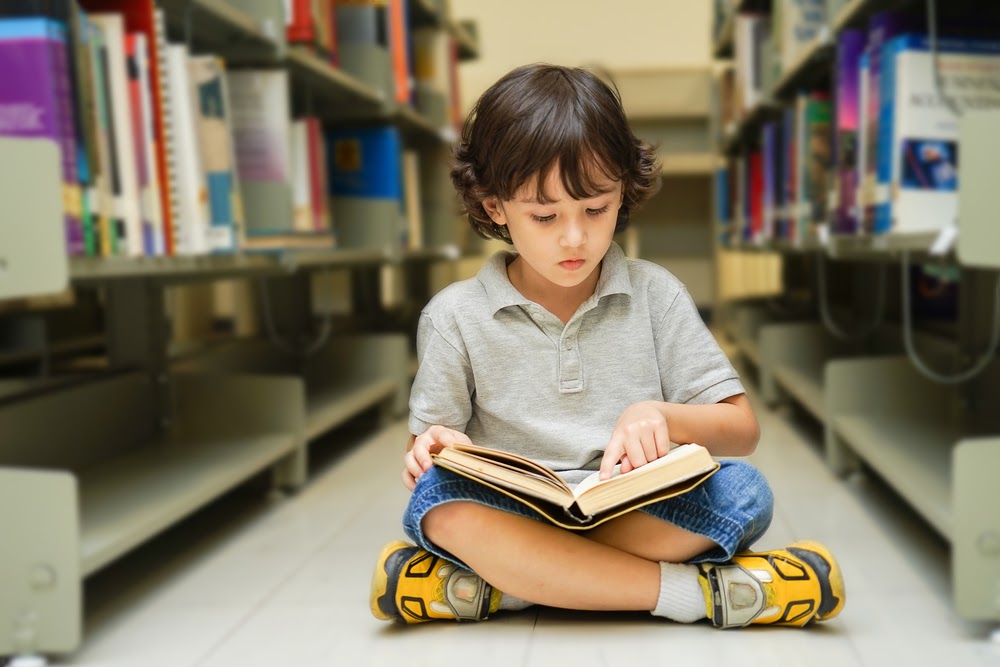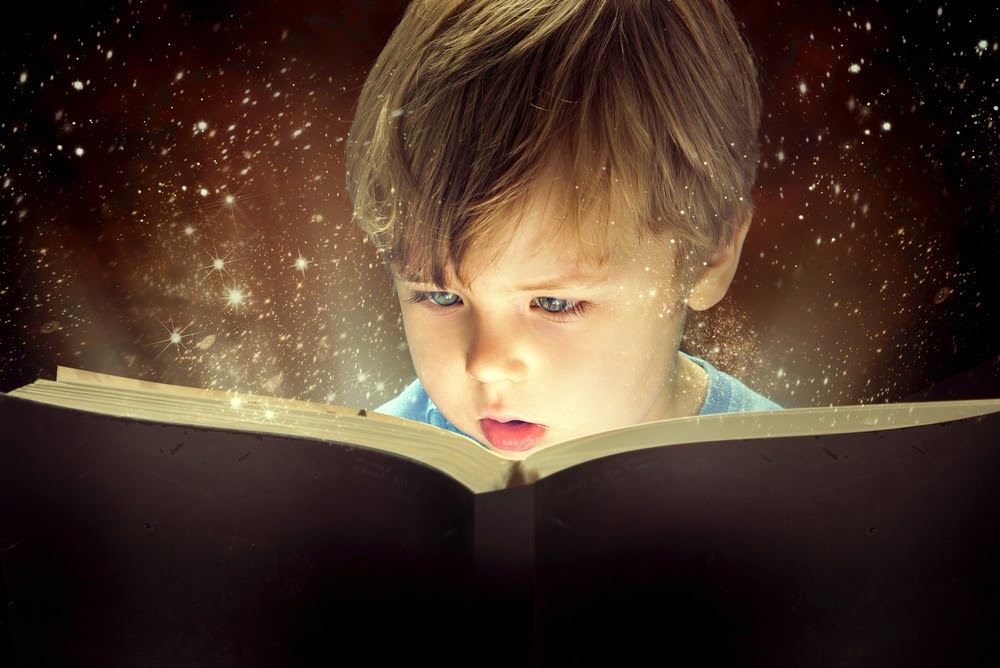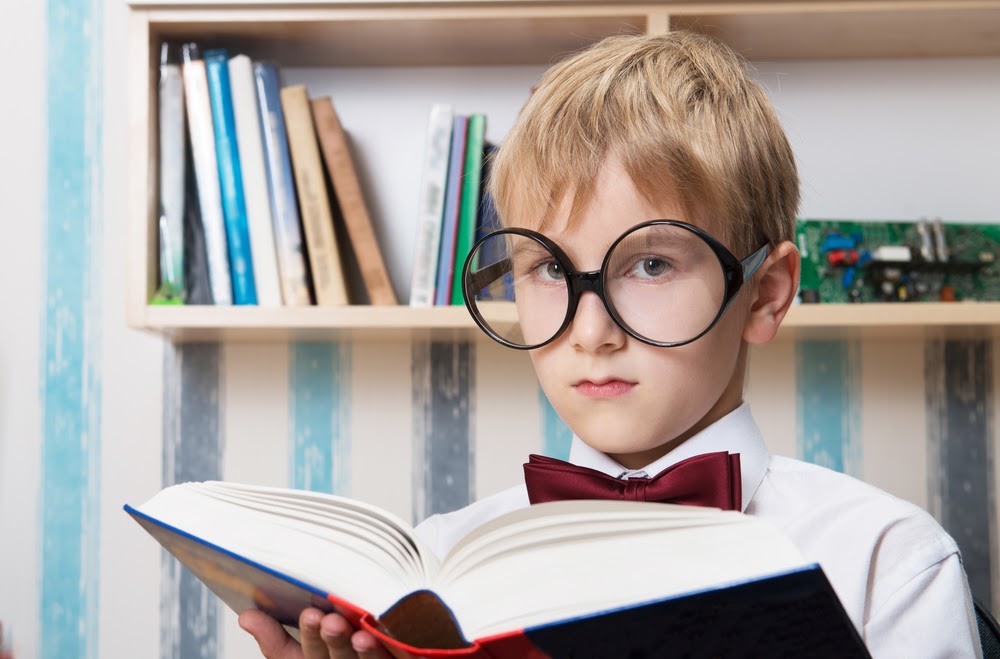
Most children are in the habit of reading every day. For many students, nightly reading is a requirement. These nightly reading minutes range typically between 15 to 30 minutes. Some children who love to read might look forward to picking up a book after school. Children who dislike reading, though, or who struggle with reading might dread those books.
Parents looking for ways to encourage children to read might offer rewards or implement fun reading activities. However, parents also could help children understand that reading affects them beyond the classroom. How does reading help you? Here are 10 ways that reading is beneficial to our minds, bodies…and can even make us happy!

1. Every book can be an adventure
Children can travel anywhere with a good book. Do they want to swim underwater? Maybe travel to another country? Books can be a magical passport to anywhere in the world, and no one has to leave their home.
Visit the library or encourage children to explore their school’s library to uncover books about cool places and destinations. Have them make a list of places in the world that they’d like to visit. Then help them pick books about those sites and countries. Ask children what they learned from their book trip. Were there any new foods that they’d like to try that they read about in their book? Parents can also take children to a local art museum to discover artists from different countries, too. Consider it a book field trip!
Books also can introduce children to planes, trains and even ships. Explore and read about different modes of travel for a fully immersive reading adventure.
2. Books introduce new ideas
Life is full of different ideas and experiences. Where we live might expose us to a limited number of opinions, cultures or habits. However, books can open up so many new ideas, cultures and experiences.
Books can introduce children to what life was like during the Great Depression. Children can learn about medieval times, and how people lived, worked and even bathed back then.
Explore ancient Egypt and the land of the Pharaohs. Read about Cleopatra. Or introduce children to age-appropriate Greek myths. There are books on religion and philosophies, too. Families can use their own culture or ancestral knowledge to encourage children to explore their roots.
Sometimes children ask parents questions they can’t understand about life, society or other cultures. Use the question to help them learn. Find a book that delves deeper and helps them understand their world…and find the answers they seek.
3. Reading helps us learn new subjects
A child might not be learning about rocks and minerals in class, but maybe they love collecting those pebbles and rocks. Books can help children understand their world and find answers to questions about their world. Grab a book about geology. Or a book that shows different minerals and rocks so that children can identify them.
There are books about botany and weather. Children can learn more about astronomy. Or even the economy. Yes, there can be age-appropriate and grade-level books about anything that suits a child’s interest. Parents just have to look. And librarians love to help! Just ask!

4. Reading expands vocabulary
Studies have shown that children in kindergarten who were read to every day (five books per day) were exposed to one million more words than children whose parents didn’t read to them. Books help develop vocabulary.
When children pick up a new book, there is a good chance that they will be exposed to new words, too. Buy them a child-friendly dictionary and encourage them to look up words they don’t know. Pretty soon, they will have a vast vocabulary.
5. Books can change the way we see the world
Opinions can change, and books can change minds. Exploring new books can help children see their world differently. Maybe they read a book about a child with a disability and this helps them understand how another child explores their world.
Books open up children and adults to new ideas. Talk to children when reading to them. Ask the questions. Have them think about characters and places. Open up a dialogue.
6. Reading can help us make new friends
Yes, characters in a book can feel like friends. However, books can help children and adults make friends, too. How? Books can be a common interest. Maybe children join a book club and meet new friends. Or maybe another child sees a book in their hand and asks them about it. Books can open up conversation.
7. Books can help bridge differences
If books can start conversations, they also might be able to bridge some differences, too. Maybe a book helped a child see another individual in a different perspective. Or perhaps children who didn’t really have much in common suddenly discover that they both love a favorite author. Sometimes commonalities are hidden between the bindings of a book.

8. Books can help us escape
Books and stories are an adventure. Sometimes when the day has been long and stressful, or when everything feels like it’s just going wrong, a book can help us escape. Suddenly children can enter another realm. They may be reading about unicorns. Or maybe a favorite cartoon character. Do they get lost in a book about a child their own age? Or perhaps they find themselves reading about ancient rulers.
Reading can be a mini vacation for the mind. Adults know that it can be fun to escape into a good book. Beach reads are popular for a reason! So are fairy tales!
9. Books can make us laugh
While books can be a good escape, they also can help children find some joy…and a good laugh, too. On a rainy day that’s glum and just miserable, open up a humorous book. Read some fun poetry. Dive into a book that’s silly. Books don’t have to just be serious. They can be comical. They can be gross. And they can make us laugh until our belly hurts!
10. Reading is a workout!
No, reading doesn’t build muscles in the arms or legs…but it helps the brain! Reading is a great workout for the brain. In addition, Healthline reports that it also can boost empathy, help with cognitive decline as we age, can help with depression and even aid with falling asleep.
While there are many more ways that reading can be beneficial, children might be surprised to know that cracking open a book benefits them beyond just checking off their daily assignment. However, children who struggle with reading might still find it a challenge to open up a book and get excited to read.
If children are falling behind their peers, parents can embrace the tech side of reading. Apps and programs like Readability can be used via a phone, table or computer. Readability provides an immersive reading experience that can appeal to children who don’t want anything to do with a bound book. Readability also includes a built-in AI tutor that helps guide children as they read. When children demonstrate proficiency with both reading fluency and comprehension, they move to a more difficult reading level.
Children can learn and explore words in each story, too. If they don’t know what a word means in a story, they simply click on the word and the program will define it. Readability ensures that children are exposed to new words so they continue to grow their vocabulary skills.
Readability also includes both fiction and nonfiction stories. Children can learn about new places, faces and experiences while growing their reading skills and becoming more confident readers.
Interested in trying Readability at home? Sign up for a free seven-day trial and start exploring new ideas through online reading adventures!

 Español
Español